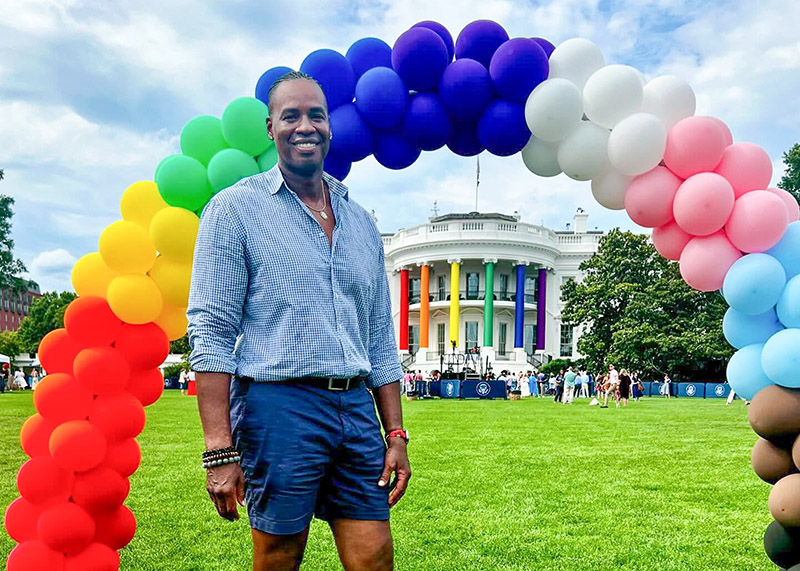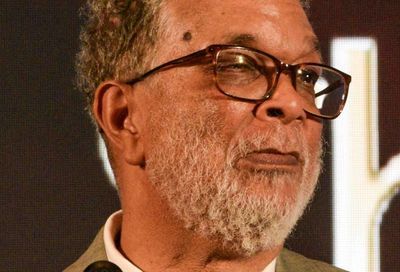
Prior to a meeting with his cabinet earlier this week, President Obama made a threat.
With a portrait of George Washington looking down at him, Obama told reporters gathered in the Cabinet Room of the White House Tuesday that while Congress is busy with a number of bills at the start of 2014, “We are not just going to be waiting for a legislation in order to make sure that we’re providing Americans the kind of help that they need.”
“I’ve got a pen and I’ve got a phone,” Obama said, “and I can use that pen to sign executive orders and take executive actions and administrative actions that move the ball forward in helping to make sure our kids are getting the best education possible and making sure that our businesses are getting the kind of support and help they need to grow and advance to make sure that people are getting the skills that they need to get those jobs that our businesses are creating.”
Obama is not the first American president to find himself frustrated with Congress, nor is he the first to threaten executive action as his legislative priorities remain blocked by the party of the opposition. Beginning with Washington himself, nearly every president has issued at least one executive order, with some going upwards of 1,000. (Franklin Roosevelt signed a whopping 3,728 during his 12 years in office.)
Obama, however, finds himself in a precarious situation. Having been elected twice by an organized but wildly diverse base, Obama has been besieged by those who voted for him in 2008 and 2012, but who haven’t seen him deliver on all of his promises.
For nearly two years Obama’s White House has been forced to defend a broken promise to the LGBT community. It was in April 2012 that White House senior adviser Valerie Jarrett told leaders from some of the nation’s largest LGBT-rights organizations that Obama would not sign an executive order prohibiting federal contractors from discrimination on the basis of sexual orientation or gender identity. The revelation was a major and unexpected blow to advocates, who had long sought the order and who thought Obama, having promised to sign such an executive order as a candidate for president in 2008, would deliver.
Since that meeting, the White House has sought to defend its decision by telling supporters and the press that Obama supports passage of comprehensive federal legislation — the Employment Non-Discrimination Act (ENDA) — that will protect all workers, rather than just employees of federal contractors. That argument hasn’t sat well with LGBT activists, who have been some of the president’s most passionate defenders. They too support ENDA, but argue signing an executive order is a tangible step forward the president could take now.
It seemed the White House, as well as press secretary Jay Carney, who frequently fields questions on the executive order from mainstream and LGBT media outlets, might finally catch a break last November when ENDA cleared the Senate with a bipartisan 64-32 vote. But nearly as soon as the vote had been tallied in the Senate, House Speaker John Boehner announced his opposition to the bill, nearly guaranteeing the bill won’t even be brought up for a vote in the Republican-controlled House of Representatives.
While lobbying in the House, virtually all of the bill’s supporters inside and outside of Congress insist Obama could take action today to protect 20 percent of the workforce with just the flick of his pen. Indeed, since April 2012, when Jarrett announced there would be no executive order from the president, Obama has signed about 50 other executive orders on a range of issues.
With each order he signs, Obama runs the risk of alienating one group or another for acting on a particular issue over another — whether it be on such high-profile issues as immigration reform, gun control or LGBT workplace discrimination. During a speech at a Democratic National Committee event in California this past November, Obama was interrupted by a heckler calling on him to take executive action on what appeared to be immigration reform.
“I’m going to actually pause on this issue because a lot of people have been saying this lately on every problem which is just sign an executive order, and we can pretty much do anything and basically nullify Congress,” Obama told the crowd. “And unfortunately that’s not how it works. We got this Constitution. We got this whole thing about separation of powers and branches. There is no shortcut to politics. And there’s no shortcut to democracy. And we have to win on the merits of the argument with the American people. As laborious as it seems sometimes, as much misinformation as there is out there sometimes, as frustrating as it may be sometimes, what we have to do is just keep on going, keep on pushing. And eventually, we move in a better direction.”
“That’s been true for the first five years of my administration,” Obama continued. “When folks said we couldn’t end ‘Don’t Ask, Don’t Tell’ — in fact, somebody — a bunch of people yelled, ‘Executive order.’ I decided, well, let’s try to actually pass a law. And we did.”
While Obama’s remarks at the start of his first cabinet meeting of the new year may have signaled a greater willingness to take executive action when Congress won’t act, it appears the rationale for such action still will not apply to matters such as LGBT workplace discrimination.
Speaking to reporters earlier this week, White House press secretary Jay Carney said the president’s remarks indicated a “renewed focus on using all of the tools available to the president, acknowledging that we’re not likely to get everything we would want legislatively done through Congress, but not acknowledging that there aren’t significant things that we can do legislatively through a Congress.”
“We’re not putting all our eggs in any single basket when it comes to advancing an agenda that grows the economy, creates more security for the middle class, opens up opportunity for all Americans, improving economic mobility,” Carney continued. “We’re going to do everything we can across the board.”
But when asked specifically about the executive order for LGBT federal contractors, Carney reiterated what the White House has been saying for years: “It is our belief that the best way to deal with employment discrimination practices is to pass the Employment Non-Discrimination Act, which is a broad piece of legislation that would apply broadly. And that is where we have put our energy. And I just don’t have any new information to convey with regards to questions about executive orders on this matter.”
[Photo: Barack Obama. Credit: Official White House Photo by Pete Souza.]
More from Metro Weekly:
FBI Director Fires Trainee for Displaying Pride Flag
Kash Patel accused an FBI trainee of an “inappropriate display of political signage” for having a Pride flag at their desk.
By John Riley on October 5, 2025 @JRileyMW
FBI Director Kash Patel has allegedly fired a former FBI employee and new agent trainee for displaying a gay Pride flag on his desk at a California field office last year, according to three people familiar with the matter.
The trainee, who worked as an FBI support specialist in Los Angeles, received a termination letter dated October 1 -- the first day of the government shutdown -- and signed by Patel, claiming he had displayed an improper “political” message in the workplace, according to CNN.
At the time, he was completing new agent training at the FBI Academy in Quantico, Virginia.
Jason Collins, First Out Gay NBA Player, Treated for Brain Tumor
Collins’ family shared that the NBA veteran and newlywed is undergoing brain tumor treatment, asking for prayers and privacy.
By John Riley on September 13, 2025 @JRileyMW
Jason Collins, the first openly gay NBA player, is reportedly undergoing treatment for a brain tumor. Collins made headlines more than a decade ago when he came out publicly in a first-person essay for Sports Illustrated.
The 41-year-old former center earned All-American honors at Stanford before being drafted by the Houston Rockets in 2001. Over his 13-year career, he played for several NBA teams, including the New Jersey Nets, Minnesota Timberwolves, Atlanta Hawks, Boston Celtics, and Brooklyn Nets.
Support Metro Weekly’s Journalism
These are challenging times for news organizations. And yet it’s crucial we stay active and provide vital resources and information to both our local readers and the world. So won’t you please take a moment and consider supporting Metro Weekly with a membership? For as little as $5 a month, you can help ensure Metro Weekly magazine and MetroWeekly.com remain free, viable resources as we provide the best, most diverse, culturally-resonant LGBTQ coverage in both the D.C. region and around the world. Memberships come with exclusive perks and discounts, your own personal digital delivery of each week’s magazine (and an archive), access to our Member's Lounge when it launches this fall, and exclusive members-only items like Metro Weekly Membership Mugs and Tote Bags! Check out all our membership levels here and please join us today!
The Magazine
-
Most Popular
 Anti-Gay Ohio Pastor Charged With Child Sexual Abuse
Anti-Gay Ohio Pastor Charged With Child Sexual Abuse  Gay Dad Sues Right-Wing Host Who Called Him “Pervert Homo”
Gay Dad Sues Right-Wing Host Who Called Him “Pervert Homo”  Capital Pride President Resigns Amid Investigation
Capital Pride President Resigns Amid Investigation  Miles Heizer Talks Netflix's ‘Boots,’ Max Parker -- and That Ending
Miles Heizer Talks Netflix's ‘Boots,’ Max Parker -- and That Ending  Gay Porn Star Austin Wolf Gets 19 Years for Child Sex Crimes
Gay Porn Star Austin Wolf Gets 19 Years for Child Sex Crimes  Alito Hints Supreme Court Won’t Overturn Gay Marriage Ruling
Alito Hints Supreme Court Won’t Overturn Gay Marriage Ruling  Fremont Ave. Review: Powerful Family Drama at Arena Stage
Fremont Ave. Review: Powerful Family Drama at Arena Stage  Aide Brags About Ciattarelli’s Opposition to Gay Marriage
Aide Brags About Ciattarelli’s Opposition to Gay Marriage  Zohran Mamdani Photographed with Anti-Gay Ugandan Politician
Zohran Mamdani Photographed with Anti-Gay Ugandan Politician  Nguyen Huong Giang Is First Trans Miss Universe Vietnam
Nguyen Huong Giang Is First Trans Miss Universe Vietnam
 Anti-Gay Ohio Pastor Charged With Child Sexual Abuse
Anti-Gay Ohio Pastor Charged With Child Sexual Abuse  Judge Orders Banned Books Restored in Military Family Schools
Judge Orders Banned Books Restored in Military Family Schools  Gay Dad Sues Right-Wing Host Who Called Him “Pervert Homo”
Gay Dad Sues Right-Wing Host Who Called Him “Pervert Homo”  Aide Brags About Ciattarelli’s Opposition to Gay Marriage
Aide Brags About Ciattarelli’s Opposition to Gay Marriage  Survey: Anti-LGBTQ Policies Are Harming Mental Health
Survey: Anti-LGBTQ Policies Are Harming Mental Health  Lesbian AG Kris Mayes Threatens Mike Johnson With Legal Action
Lesbian AG Kris Mayes Threatens Mike Johnson With Legal Action  Deadlier Mpox Strain Detected in Los Angeles County
Deadlier Mpox Strain Detected in Los Angeles County  Trump-Era Rule Forces Airlines to Drop 'X' Gender Markers
Trump-Era Rule Forces Airlines to Drop 'X' Gender Markers  Massachusetts Couple Loses Foster License Over LGBTQ Policy
Massachusetts Couple Loses Foster License Over LGBTQ Policy  Capital Pride President Resigns Amid Investigation
Capital Pride President Resigns Amid Investigation
Scene
Metro Weekly
Washington's LGBTQ Magazine
P.O. Box 11559
Washington, DC 20008 (202) 527-9624
About Us pageFollow Us:
· Facebook
· Twitter
· Flipboard
· YouTube
· Instagram
· RSS News | RSS SceneArchives
Copyright ©2025 Jansi LLC.












